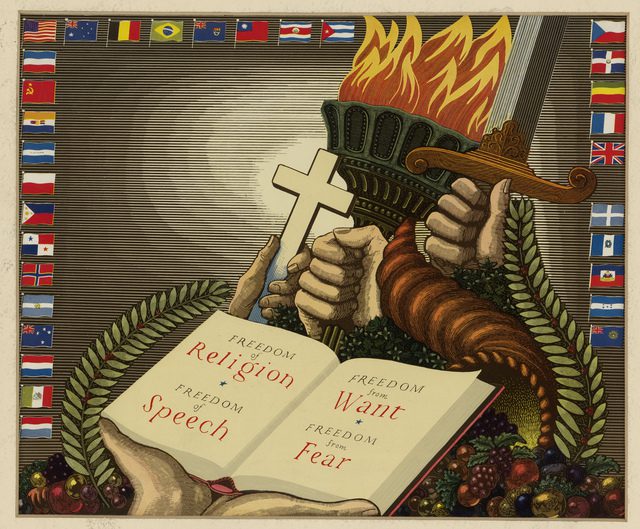Elon Musk calls himself “a free speech absolutist,” but even he is putting limits on Twitter posts that give people’s real-time locations, a response to stalkers he felt threatened his child. And rightly so.
But the country seems to be confused about censorship, free speech, and any necessary boundaries. To the point that both the Left and the Right are accusing each other of violating freedom of expression.
The Left is attacking parents for banning sexually explicit books for children, while not only banning but, as we saw in yesterday’s post, rewriting children’s classics that fail the woke sensitivity test. Meanwhile censoring conservative ideas and canceling conservatives every chance they get.
Meanwhile, the Supreme Court is hearing a case about the liability of internet platforms like Google and Facebook for possibly harmful content that goes up on their sites. The free speech issues that case raises are so complicated that neither the Left nor the Right seem able to sort them all out.
In his discussion of what censorious progressives are doing to children’s author Roald Dahl, which we cited yesterday, Mark Hemingway writes about the duplicity of the Left:
Let me see if I have this straight. A parent who complains about drawings of underage kids performing oral sex in “Gender Queer” — a graphic novel that liberal politicians and the media have gone to the mat to defend, including in school libraries — is a censorious bigot. But when a corporation such as Netflix, prompted by the publishing industry’s well-compensated legions of “sensitivity readers,” decides to posthumously edit one of the most beloved children’s authors of all time because every right-thinking person knows inchoate minds shouldn’t get the idea to describe people as “fat” — well, that’s a perfectly reasonable thing to do to protect kids.
This is the game — to stuff kids’ libraries with leftist revisionist history, dumbed-down critical theory masquerading as “anti-racism,” dubious gender ideology, sexually explicit material, and so on. When parents complain about what they find, they’re the ones the media portray as politically motivated.
Hemingway goes on to point out the difference in the two cases, reminding us too that something similar has already been done to Dr. Seuss and that we can expect further literary vandalism:
Parents asking for prudent, age-appropriate protections for what kids can access are not asking for supposedly offensive books to be “banned.” They will still be available to purchase and read elsewhere; parents just don’t want them in school libraries.
This is a marked contrast to what’s happened in the Dahl and Seuss cases. It’s not clear whether you will ever be able to purchase a new, non-bowdlerized copy of Dahl in the future. And not only did Seuss Enterprises stop printing several Seuss books altogether, eBay decided to ban all sales of used copies of the offending Dr. Seuss books. That’s actual book banning, as opposed to asking local schools and politicians to make responsible decisions about what belongs in kids’ libraries, which is a perfectly reasonable thing to expect.
And what do we do about free speech on the internet? When Facebook censors a conservative, is the conservative’s free speech being violated? Or is Facebook exercising its free speech in deciding what to put up on its platform?
The Supreme Court is hearing a case that will either uphold or overturn Section 230 of the Communications Decency Act, which gives internet companies legal immunity–that means they can’t be sued or prosecuted–for material posted by other people on their platforms. That law, passed 25 years ago when the internet was just getting started, has been described as the “26 words that created the modern internet.”
Its effect was to let us ordinary folks in the general public put up content on the internet. As opposed to just going to sites that are pre-written and pre-packaged like magazines. We can post our thoughts on Facebook, upload videos to YouTube, and make comments on Patheos. If sites were legally liable for everything put up on them, that is, if they could be sued or prosecuted for what users post, the internet would be a far different place.
But, as always happens in a sinful world, all sides abuse their privileges. Section 230 also opened the door for internet pornography, as well as other noxious and harmful material on the internet. Meanwhile, the big platforms are throwing their weight around by censoing not only conservatives but any kind of information (such as scientific dissent about COVID) not in favor with the elite status quo. You would think this would be a violation of their Section 230 privilege, since they are controlling the information they put up, rather than leaving it to their users.
Then again, some users also abuse their privileges. There are actually two suits before the Supreme Court, Gonzalez v. Google and Twitter v. Taamneh, both of which were filed by families whose loved ones were killed by ISIS terrorists. The cases contend, respectively, that YouTube (owned by Google) and Twitter used algorithms that facilitated the organization and operations of ISIS by spreading terrorist propaganda and helping wanna-be terrorists join the cause.
Some conservatives hope the court takes away the platforms’ immunity. I can sympathize with the plaintiffs and with the desire to stick it to the big tech companies. But wouldn’t taking away their immunity mean that the companies would have to do even more policing of what goes up on their platforms, which would result in MORE censorship of controversial–that is to say, conservative–ideas?
My sense is that lines need to be drawn regarding internet immunity and the nature of free speech. I’m sure the Supreme Court will draw some in the internet cases, but I’m not sure what they should be. Do you have any ideas about it?
I’ve been reading about “cultural universals,” traits that cultures in all of their diversity share. One of them is that certain things and certain words are taboo. That is to say, “a social group’s ban, prohibition, or avoidance of something (usually an utterance or behavior) based on the group’s sense that it is excessively repulsive, offensive, sacred, or allowed only for certain persons.”
We have, for example, taboos regarding sex, including sexualizing children. It seems that cultural progressives are working hard to cast down sexual taboos and to replace them with taboos regarding “diversity, equity, and inclusion” based on woke ideology. That means our political divisions have become a cultural cleavage that cannot be easily reconciled.
Where do you think free speech lines should be drawn, if any?
Illustration: Four Freedoms, U.S. National Archives, https://catalog.archives.gov/ via Picryl. Public Domain












